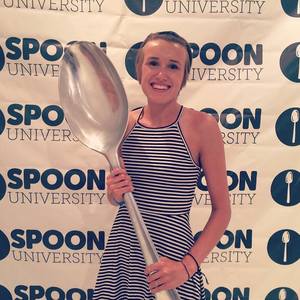There I was, going about my normal business after already calling myself a vegetarian for over two years. Parmesan on my pasta? Yes, please! A sprinkle of Gorgonzola on my salad? Load me up! But then earlier this week, I was Facebook, scrolling through my newsfeed, when I was hit by a tidbit of information that would change my life forever — NOT ALL CHEESE IS VEGETARIAN.
At first I thought that this was some cruel joke, as I’m sure you’re hoping right now. But upon further research, it became clear that a few select cheeses include rennet, an enzyme harvested from the stomach of living beings such as cows and goats. This wouldn’t be so bad, except that to obtain rennet, the animal used must be, well, dead. Without this enzyme, milk would not coagulate into the cheeses we know and love. I know, this is a lot to take on, but hear me out.
Without further ado, let’s rip off this band aid of lies and get down to business! Brace yourself — these are the cheeses vegetarians should not be eating:
1. Parmesan

Named after the Italian provinces that this cheese is mainly produced in, Parma and Reggio Emilia, Parmesan cheese must be produced from the milk of cows grazing exclusively on fresh grass and hay. Shockingly enough, this cheese is required to age for a whole year! Many enjoy it as an ingredient in risotto, soups, or on pasta — unless you’re a vegetarian, I guess.
2. Gruyere
Gruyere is a popular cheese from Switzerland made from cow’s milk. It is made through a repeated process of heating and curdling to achieve its creamy texture. Gruyere is great in quiche, as fondue, or atop French onion soup. *silently sobs into my soup*
3. Gorgonzola
Gorgonzola is another popular Italian cheese that can be crumbled easily on a Waldorf salad, on top of a pizza, or simply served paired with a great red wine. The particular taste of each type of Gorgonzola depends on the amount of time that it has aged.
4. Pecorino Romano
Pecorino is a term used to describe any cheese made with only sheep’s milk. Some versions have been Americanized, though, and are made with cow’s milk. Under Italian legislation, the production of Pecorino Romano, one of the most ancient Pecorino cheeses, is only allowed in three areas of the country. Since it is deliciously salty, Pecorino Romano is often used as a topping to pasta, breads, and casseroles.
Ugh, rennet, you are literally my worst enemy.
5. Manchengo
Manchengo is a very popular sheep’s-milk cheese in Spain. Due to the grass molds traditionally used to make the cheese, the wheels usually have a zig-zag weave-like pattern on the outside. Manchengo pairs great with figs/fig jam and adds a distinct flavor to plain old mac and cheese, but I guess I’ll stick to Kraft.
6. Camembert
Traditionally from Normandy, France, Camembert cheese was created in 1791. As the cheese ages, the inside becomes runny and the bloomy white rind is meant to be eaten with the rest of the cheese. This variety is delicious warmed and served with a baguette. Bread is safe for vegetarians … right?
#SpoonTip: Do not eat camembert below room temperature! The flavors will not be quite as developed, so be sure to take it out ahead of time before serving.
7. Emmentaler
Emmentaler (or Emmental) is a cow’s milk cheese made in Switzerland. It contains walnut-sized holes, since it is a form of Swiss cheese, and is considered difficult to make due to the distinct hole laden fermentation process. Emmentaler is commonly used for fondue, sandwiches, and sauces.
After realizing the shocking truth behind the mystery ingredient in these cheeses and a couple more peculiar ones, I was distraught. I can’t be a vegetarian if it means giving up Parmesan! Luckily, I have some life-saving news — some of these cheeses can be made vegetarian using vegetable or microbial-based rennet. So, if you pay attention to the packaging, you’ll be back to eating fondue and cheesy pasta in no time.


